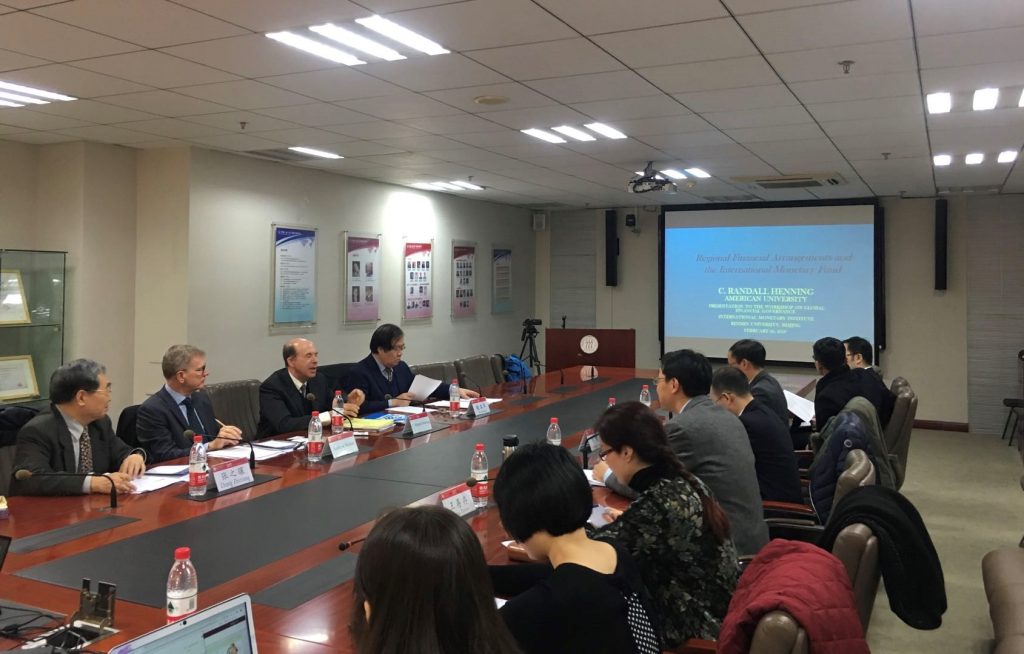Macro-Finance Salon (No. 114) and Workshop on Emerging Countries in Global Financial Governance
2019-02-26 IMI In Prof. Andrew Walter’s paper “Fragmentation and Resilience in Global Economic Governance: Emerging Countries and Financial Regulatory Standard-Setting”, he explores why the global financial standard-setting process has to date been more politically resilient than might have been expected. He argues that important among the reasons for this resilience is that some major emerging market countries see a number of continuing advantages in their membership of global standard-setting bodies. However, the variation in these perceived advantages and of preferences regarding global financial standard-setting among emerging countries may have grown since 2009. This inhibits the formation of a powerful bloc favouring the development of institutional alternatives, as has occurred in trade, development finance and a number of other areas. He also makes agreement on a common reform agenda difficult.
In Prof. Andrew Walter’s paper “Fragmentation and Resilience in Global Economic Governance: Emerging Countries and Financial Regulatory Standard-Setting”, he explores why the global financial standard-setting process has to date been more politically resilient than might have been expected. He argues that important among the reasons for this resilience is that some major emerging market countries see a number of continuing advantages in their membership of global standard-setting bodies. However, the variation in these perceived advantages and of preferences regarding global financial standard-setting among emerging countries may have grown since 2009. This inhibits the formation of a powerful bloc favouring the development of institutional alternatives, as has occurred in trade, development finance and a number of other areas. He also makes agreement on a common reform agenda difficult.
 After the presentations, the discussants expressed their opinions centering the role international institutions plays in global financial governance, participation of EMC in Basel, China-US trade war, etc.
After the presentations, the discussants expressed their opinions centering the role international institutions plays in global financial governance, participation of EMC in Basel, China-US trade war, etc.

